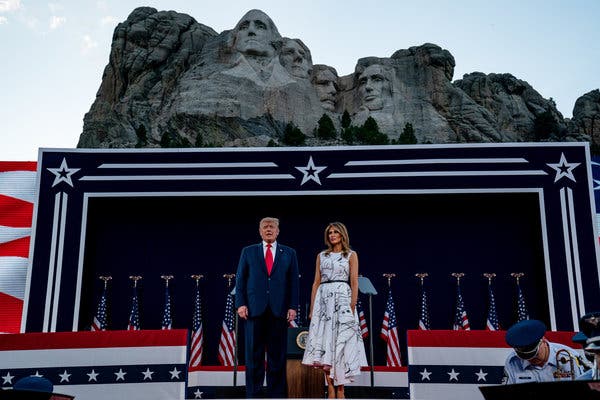Advertisement
The owner of the New York Yankees, pirates, Deep Throat and a former president share the distinction.
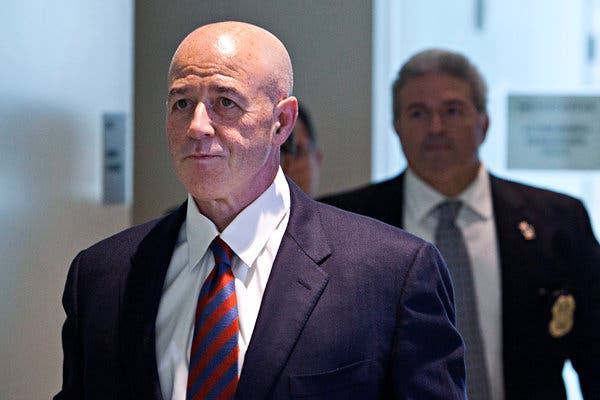
For as long as there has been a republic, American presidents have been granting pardons — and no, you don’t need a lifeline from Geraldo Rivera.
Mr. Rivera, the Fox television personality, vouched for the former New York City police commissioner Bernard B. Kerik to get a pardon from President Trump, who this week granted clemency to Mr. Kerik and 10 other people.
Among them were the so-called junk bond king of the 1980s, Michael R. Milken, and Edward J. DeBartolo Jr., a former owner of the San Francisco 49ers, as well as the former Illinois governor Rod R. Blagojevich, whose corruption sentence was commuted by Mr. Trump.
They joined an exclusive club of reclamation figures, many of them with sordid pasts and political connections: politicians and pirates, the owner of the New York Yankees, fixers in the Iran-contra affair, Deep Throat and a former president, Richard M. Nixon.
Is Roger J. Stone Jr. — the ally of Mr. Trump sentenced Thursday to 40 months in prison for obstruction and perjury — next?
Here is a sampling of some of the more infamous pardons and the presidents who granted them.
Washington didn’t wait long to exercise the pardoning authority of the president prescribed by the Constitution, which historians said was one of the few aspects of monarchy rule in England that the framers adopted.
In 1795, Washington granted the first pardons to John Mitchell and Philip Weigel, who were convicted of treason for their roles in the Whiskey Rebellion. The insurrection broke out in western Pennsylvania after the federal government placed a steep excise tax on distilled spirits.
Early on, the framers had debated which branch of the government should have the power to pardon — the president or Congress.
“There was this fear about a too-powerful president,” Barbara A. Perry, the presidential studies director at the University of Virginia’s Miller Center, said in an interview this week.
The French pirates Jean Lafitte and Pierre Lafitte were best known for their marauding ways in the Gulf of Mexico. The brothers smuggled goods and enslaved people to southern Louisiana and flouted the law.
Jean Lafitte redeemed himself when he helped defend New Orleans during the War of 1812, earning a pardon from Madison for his and his brother’s smuggling crimes. A national historical park and preserve is named after Jean Lafitte, as well as a former blacksmith shop on Bourbon Street that legend has it was used by the brothers and has laid claim to being the oldest structure used as a bar in the United States.
John C. Frémont, known as the “Pathfinder of the Rocky Mountains,” was a central figure in the exploration of the West. He was the military governor of California and an Army officer. But his insubordination during the Mexican-American War led to Frémont’s being court-martialed.
Polk pardoned Frémont, who went on to become the newly formed Republican Party’s first presidential nominee in 1856, a race that he lost.
Brigham Young, a patriarch of the Church of Jesus Christ of Latter-day Saints, ascended to power as the first governor of the Utah Territory. But tensions had been festering between the federal government and the colonists in Utah, which prompted Young’s removal by Buchanan.
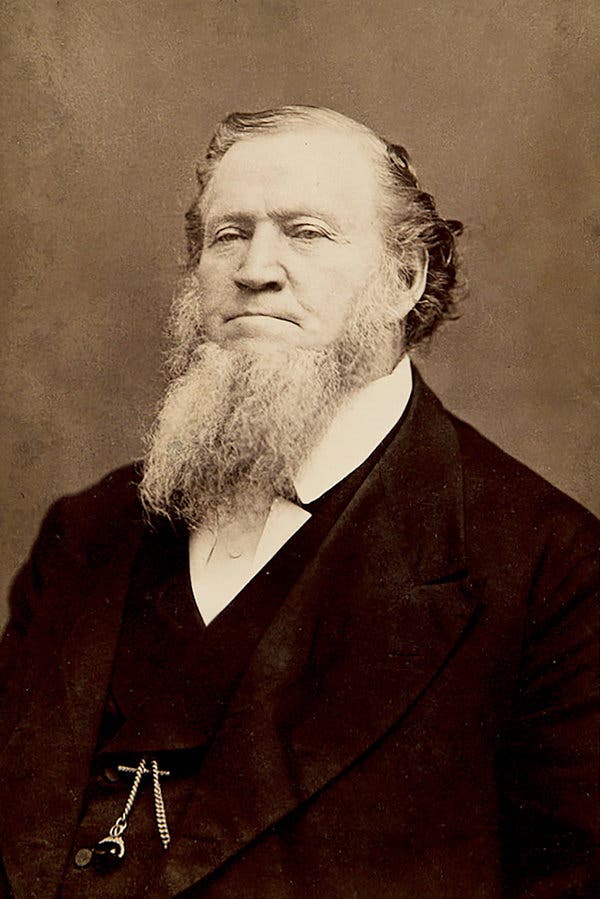
The president sent U.S. Army soldiers to Utah to assert federal rule in the territory in what was known as the Utah War. Buchanan ultimately pardoned Young for treason and sedition.
In 1862, a band of Dakota Indians attacked white settlements in the Minnesota frontier and was accused of killing 490 people, including women and children. The hostilities culminated years of strained relations between the influx of settlers and the starving Dakota, historically known as the Sioux, who had been promised food and other supplies in a series of broken peace treaties.
Lincoln, whose grandfather had been killed by Native Americans, spared 265 of 303 Dakota who had been condemned to death. They were either fully pardoned or died in prison.
“I could not afford to hang men for votes,” Lincoln said at the time.
On Christmas Day 1868, Johnson granted pardons to all those who fought for the Confederacy during the Civil War.
“I think there is almost this religious sense of mercy and clemency to try to bring the country back together,” Professor Perry said.
Johnson was also known for pardoning Samuel A. Mudd, the doctor and tobacco farmer who was convicted of conspiracy in Lincoln’s assassination after he helped set the broken leg of John Wilkes Boothe and harbored him following the shooting.
James Michael Curley was the embodiment of Boston’s Democratic machine. He was elected mayor several times, but his incumbency was interrupted by multiple defeats. He served in Congress and as Massachusetts governor.
Curley’s political career was also marred by corruption and cronyism. He spent five months in federal prison after being convicted of mail fraud. In 1950, Truman granted Curley a full pardon after securing his release.
Ford granted 382 pardons in 29 months after assuming the presidency in 1974, according to Justice Department records.
None has been dissected more than Ford’s pardon of former President Richard M. Nixon for all federal crimes he “committed or may have committed or taken part in” while in office. The pardon came only weeks after Nixon became the first and only U.S. president to resign from office.
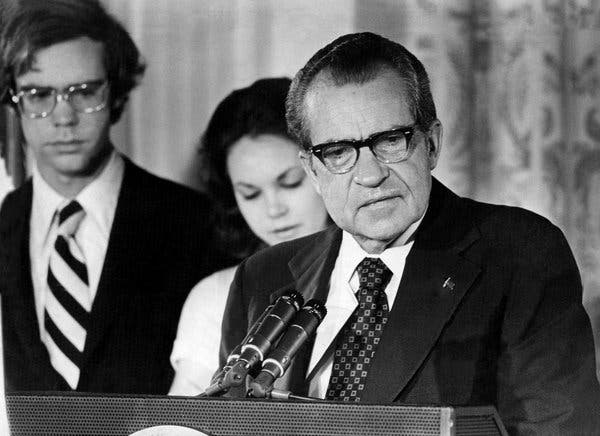
Nixon had been facing impeachment by the House and almost certain conviction by the Senate for impeding the investigation into the break‐in at the Democratic headquarters in the Watergate complex. The men involved in the break-in were tied to agents of Nixon’s re-election campaign.
“Ford did not want the circus of that to be plaguing him through his presidency,” Professor Perry said, pointing out that the pardoning of Nixon cast a dark shadow over Ford’s 1976 campaign. “That was probably the primary reason for Ford’s defeat.”
Ford was also known for pardoning Iva Toguri D’Aquino, the Japanese-American who was linked to the Tokyo Rose broadcasts and was convicted of treason in 1949 for disseminating propaganda from Japan to U.S. servicemen in World War II. She maintained her innocence until her death in 2006.
It has been 10 years since he died, but legions of baseball fans still know him as The Boss.
George M. Steinbrenner III, whose domineering largess turned the Yankees into a billion-dollar enterprise, was granted a pardon by Reagan for making illegal contributions to Nixon’s campaign in 1972.
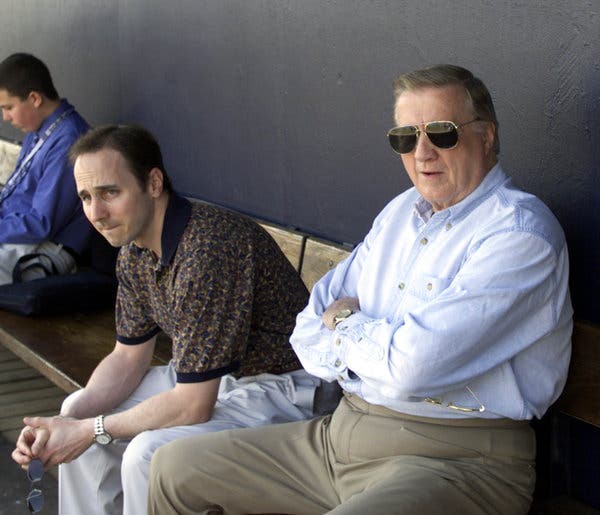
Reagan also was known for pardoning W. Mark Felt, the No. 2 official at the F.B.I. who later revealed he was the informant known as Deep Throat during the Watergate scandal.
On Christmas Day 1992, Mr. Bush granted six Reagan administration officials pardons for their roles in the Iran-contra affair, including former Defense Secretary Caspar W. Weinberger.
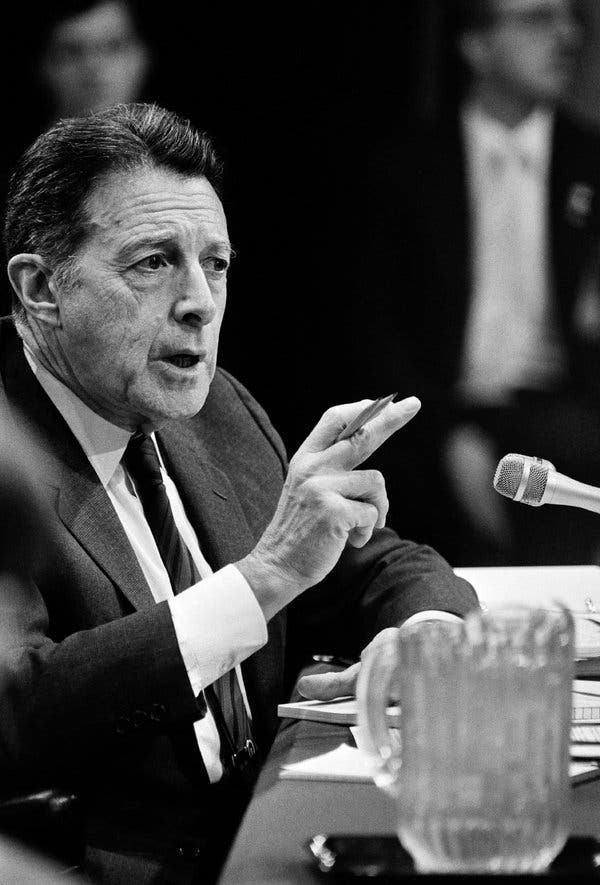
Weinberger had been indicted on charges that he lied to Congress about secret arms sales to Iran that helped underwrite U.S.-backed rebels in Nicaragua.
The pardons wiped out one conviction, three guilty pleas and two pending cases in the Iran-contra affair, which drew condemnation from the independent prosecutor in the case, Lawrence E. Walsh.
Marc Rich, the fugitive financier who fled the United States after his indictment on charges of widespread tax evasion, illegal dealings with Iran and other crimes, received a last-minute reprieve from Mr. Clinton as one of the president’s final acts in office.
Not long after the pardon, it came to light that Mr. Rich’s former wife, Denise Rich, had made large donations to the Democratic Party and the Clinton library.
Mr. Clinton also pardoned Roger Clinton, his half brother, who had been convicted on drug charges; Patty Hearst, the publishing heiress convicted in a 1974 bank robbery; and Susan H. McDougal, a onetime Clinton business partner who was jailed in the Whitewater scandal.
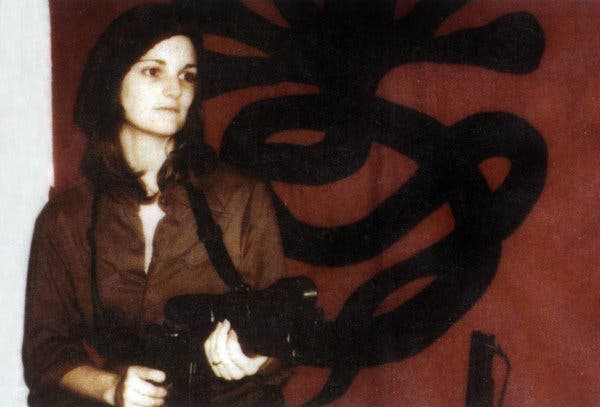
One of the most contentious clemency cases of Mr. Bush’s presidency involved I. Lewis Libby Jr., a onetime chief of staff to Vice President Dick Cheney.
Mr. Libby, who goes by Scooter, had been convicted of perjury and obstruction of justice in connection with the disclosure of the identity of a C.I.A. officer, Valerie Plame.
Mr. Bush commuted Mr. Libby’s 30-month sentence, setting off a firestorm of criticism and a hearing in the House Judiciary Committee about the use of clemency for executive branch officials.
Mr. Libby later received a full pardon from Mr. Trump.
The day before he left office, Mr. Bush commuted the sentences of Jose A. Compean and Ignacio Ramos, two former Border Patrol agents who had been imprisoned for shooting a Mexican drug smuggler and then trying to cover it up.
In one of the largest uses of clemency power by a president, Mr. Obama pardoned 212 people and commuted the sentences of another 1,715 people during his two terms, according to the Justice Department.
Mr. Obama often granted clemency to those convicted of nonviolent crimes under tough drug laws, which disproportionately affected black and Latino people.
In 2017, Mr. Obama intervened in the case of Chelsea Manning, the former Army intelligence analyst convicted of leaking military and diplomatic materials to WikiLeaks in 2010. The president commuted all but four months of her 35-year sentence. Ms. Manning had been jailed for seven years. In May, Ms. Manning was sent back to jail after refusing to testify before a grand jury investigating WikiLeaks, an organization that publishes leaks online.

As one of his final acts in office, Mr. Obama pardoned Willie McCovey, the Hall of Fame first baseman for the San Francisco Giants, who pleaded guilty to tax fraud charges for failing to report tens of thousands of dollars received in fees from autograph shows.
Mr. McCovey, who died in 2018, had been sentenced to two years of probation and was fined $5,000.


